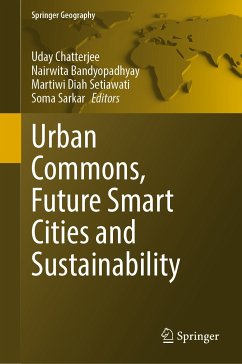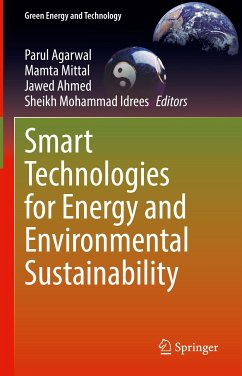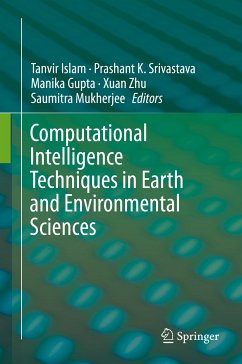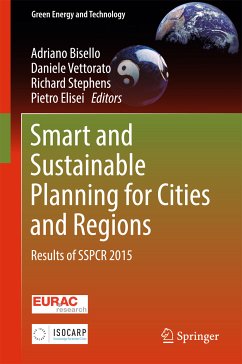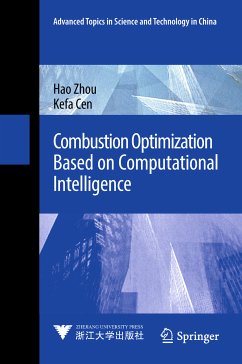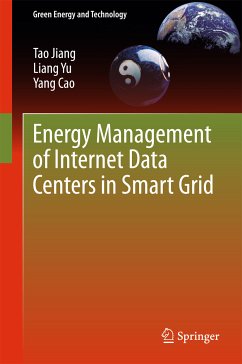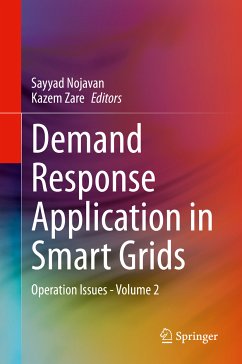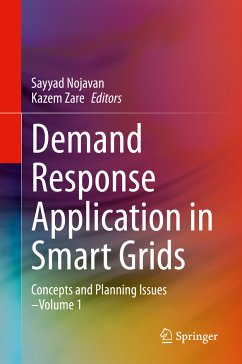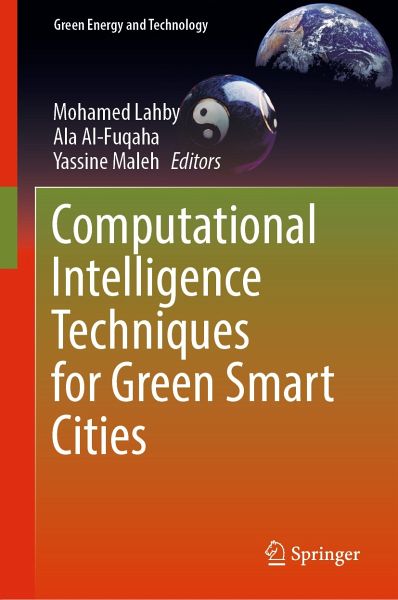
Computational Intelligence Techniques for Green Smart Cities (eBook, PDF)
Versandkostenfrei!
Sofort per Download lieferbar
Statt: 160,49 €**
112,95 €
inkl. MwSt.
**Preis der gedruckten Ausgabe (Gebundenes Buch)
Alle Infos zum eBook verschenkenWeitere Ausgaben:

PAYBACK Punkte
56 °P sammeln!
This book contains high-quality and original research on computational intelligence for green smart cities research. In recent years, the use of smart city technology has rapidly increased through the successful development and deployment of Internet of Things (IoT) architectures. The citizens' quality of life has been improved in several sensitive areas of the city, such as transportation, buildings, health care, education, environment, and security, thanks to these technological advancesComputational intelligence techniques and algorithms enable a computational analysis of enormous data sets...
This book contains high-quality and original research on computational intelligence for green smart cities research. In recent years, the use of smart city technology has rapidly increased through the successful development and deployment of Internet of Things (IoT) architectures. The citizens' quality of life has been improved in several sensitive areas of the city, such as transportation, buildings, health care, education, environment, and security, thanks to these technological advances
Computational intelligence techniques and algorithms enable a computational analysis of enormous data sets to reveal patterns that recur. This information is used to inform and improve decision-making at the municipal level to build smart computational intelligence techniques and sustainable cities for their citizens. Machine intelligence allows us to identify trends (patterns). The smart city could better integrate its transportation network, for example. By offering a better public transportation network adapted to the demand, we could reduce personal vehicles and energy consumption. A smart city could use models to predict the consequences of a change, such as pedestrianizing a street or adding a bike lane. A city can even create a 3D digital twin to test hypothetical projects.
This book comprises many state-of-the-art contributions from scientists and practitioners working in machine intelligence and green smart cities. It aspires to provide a relevant reference for students, researchers, engineers, and professionals working in this area or those interested in grasping its diverse facets and exploring the latest advances in machine intelligence for green and sustainable smart city applications.
Computational intelligence techniques and algorithms enable a computational analysis of enormous data sets to reveal patterns that recur. This information is used to inform and improve decision-making at the municipal level to build smart computational intelligence techniques and sustainable cities for their citizens. Machine intelligence allows us to identify trends (patterns). The smart city could better integrate its transportation network, for example. By offering a better public transportation network adapted to the demand, we could reduce personal vehicles and energy consumption. A smart city could use models to predict the consequences of a change, such as pedestrianizing a street or adding a bike lane. A city can even create a 3D digital twin to test hypothetical projects.
This book comprises many state-of-the-art contributions from scientists and practitioners working in machine intelligence and green smart cities. It aspires to provide a relevant reference for students, researchers, engineers, and professionals working in this area or those interested in grasping its diverse facets and exploring the latest advances in machine intelligence for green and sustainable smart city applications.
Dieser Download kann aus rechtlichen Gründen nur mit Rechnungsadresse in A, B, BG, CY, CZ, D, DK, EW, E, FIN, F, GR, HR, H, IRL, I, LT, L, LR, M, NL, PL, P, R, S, SLO, SK ausgeliefert werden.



